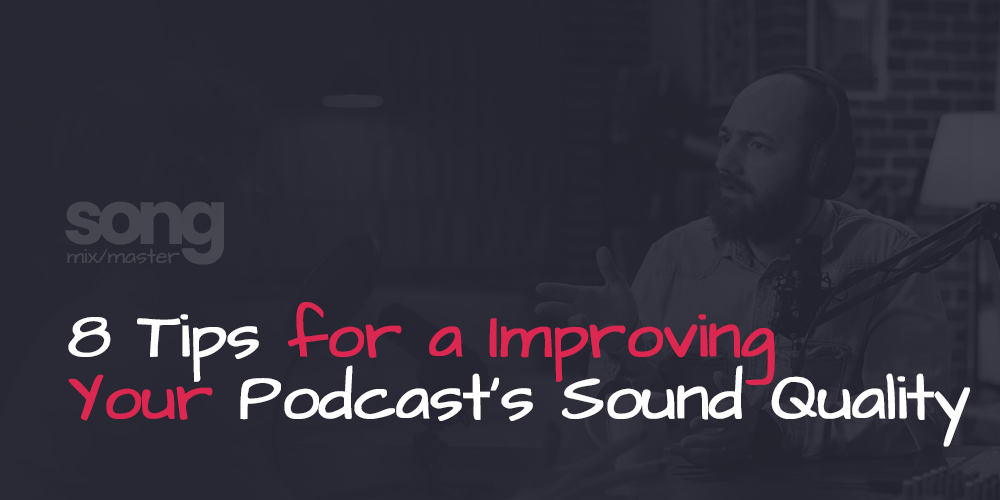Podcasts have become a powerful medium for sharing knowledge, stories, and entertainment with audiences worldwide. However, with this booming format comes increased competition, making it essential to stand out.
One crucial aspect of podcasting that often gets overlooked is audio quality. In this article, we will delve into the art of podcast mastering, combining insights from experts in post-production, audio engineering, and podcasting to help you improve your podcast’s sound quality and create a more professional and engaging listening experience.
1. Start with the Right Environment
The foundation of quality podcast audio begins with your recording environment. Avoid cramped spaces with poor acoustics and opt for larger, well-furnished rooms. Rooms with carpets, rugs, curtains, and sofas can help minimize reverb and reflections, providing a smoother recording experience. Recording during quieter times, like at night, can also reduce background noise, enhancing your audio quality.
2. Invest in Quality Equipment
Your microphone is your most critical tool. Invest in a good-quality podcasting microphone to capture clear and rich vocals. Avoid using low-quality microphones or smartphones, as they can lead to distorted and unpleasant sounds. Having separate microphones for each guest, if possible, and recording separate tracks for each microphone can significantly improve the overall recording quality.
3. Master the Art of Mic Placement
To achieve that warm, radio-style sound, position your microphone about 20cm from your mouth. Avoid getting too close to prevent distortion and minimize room reverb. Experiment with microphone angles to find the perfect balance. Remember, it’s easier to increase the volume during editing than to fix distortion caused by overdriving the microphone during recording.
4. Edit with Precision
Once you’ve recorded your podcast, the editing process plays a crucial role in achieving professional audio quality. Clean and normalize your audio, removing unnecessary pauses, repetitions, and background noise. Apply subtle equalization and compression to give your voices that warm and deep radio-like quality. Avoid overly bright voices, as they can fatigue listeners, especially those using headphones.
5. Enhance with Music
Choose music that complements your podcast’s content and creates a unique identity. Introduce your podcast with a musical intro, use subtle background music throughout, and wrap up with an outro track. This musical journey can make your podcast more engaging and enjoyable for listeners.
6. Remote Recording Considerations
If you’re recording remotely with guests or co-hosts, prioritize their audio quality. Encourage them to find quiet, spacious recording environments and use headphones to monitor their audio. Experiment with different recording platforms like Zoom, Skype, or specialized podcast recording services. Keep redundancy and insurance in mind by recording multiple audio sources to ensure you have usable content in case of technical issues.
7. Budget Extra Time for Post-Production
Give yourself ample time for post-production, including editing, mixing, and quality checks. Be mindful not to over-edit, as excessive processing can negatively impact the natural flow of your podcast. Aim for a balance between cleanliness and authenticity in your final audio.
8. Less is More in Mixing & Mastering
When it comes to podcast mixing, remember that less is often more. Excessive processing can leave noticeable artifacts in the audio. Keep your mixing subtle, focusing on balancing vocal tracks and eliminating any issues, such as noise or plosives. Avoid over-processing, as listeners can pick up on these subtleties in the minimalistic podcast format.
Mastering the art of podcasting involves a combination of recording techniques, editing finesse, and a commitment to providing the best audio quality for your audience. By following the tips and insights shared in this article, you can take your podcast to the next level and create a professional and engaging listening experience that will keep your audience coming back for more.
Remember, the journey to podcast mastery is a continuous one, so keep refining your skills and exploring new ways to enhance your podcast’s sound quality.


Disclaimer: Any references to any brands on this website/webpage, including reference to products, trademarks, brands and companies, are provided for description purposes only. We don't have any association with or endorsement by these brands or companies. Some of the links on our blog may be affiliate links. This means if you click on these links and make a purchase, we may earn a commission at no extra cost to you.
Need Professional Mixing & Mastering?
You may also like to read...
Increase Mastering Loudness With Soft Clipping and Limiting
From Bedroom to Billboard With Best Online Mixing and Mastering Services
Learn How Audio Saturation Can Improve Your Mixes
The Secret Behind Antares’ New Vocal De-Esser Plugin
The Essential Guide to Audio Normalization
Understanding Audio Compression: Types and Techniques